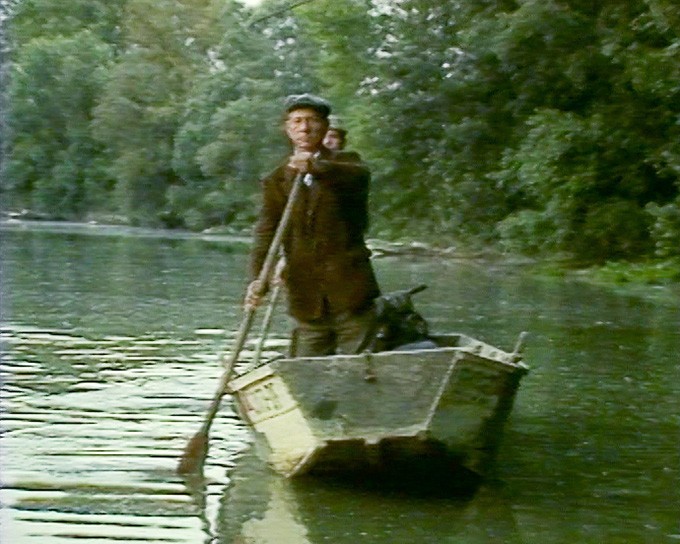
Image: Film still from Ádám Csillag, "Dunaszaurusz" Part II (1988)
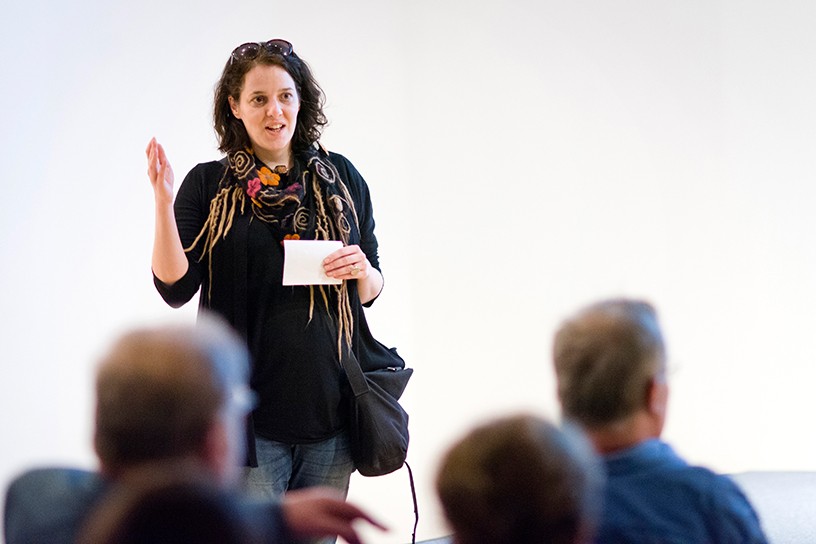
Opening address by Katalin Székely, Vera and Donald Blinken Open Society Archives
Photo: Daniel Vegel, 2016.
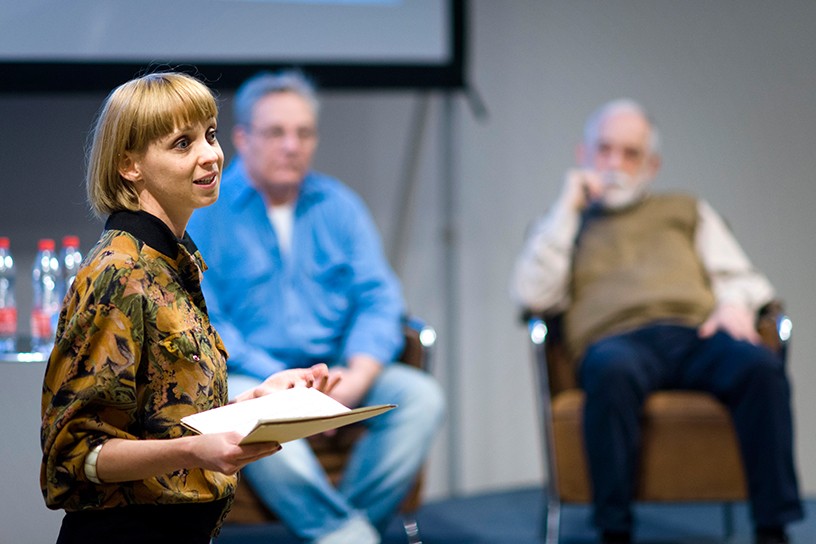
Introduction and talk moderated by Szilvia Nagy
Photo: Daniel Vegel, 2016.
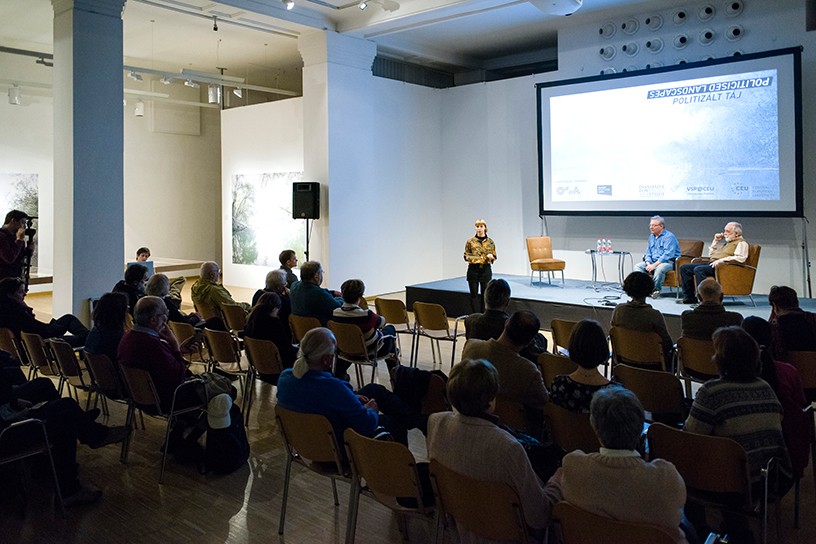
Introduction and talk moderated by Szilvia Nagy
Photo: Daniel Vegel, 2016.
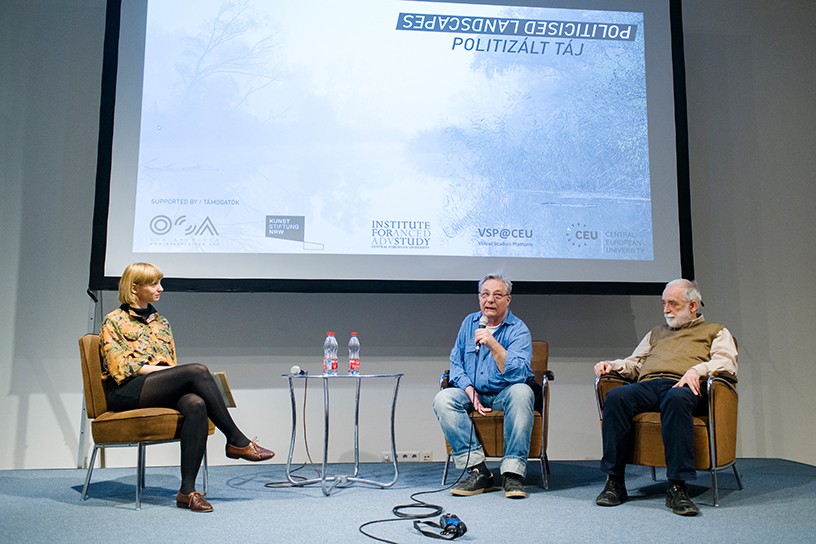
Ádám Csillag in conversation with János Vargha and Szilvia Nagy
Photo: Daniel Vegel, 2016.
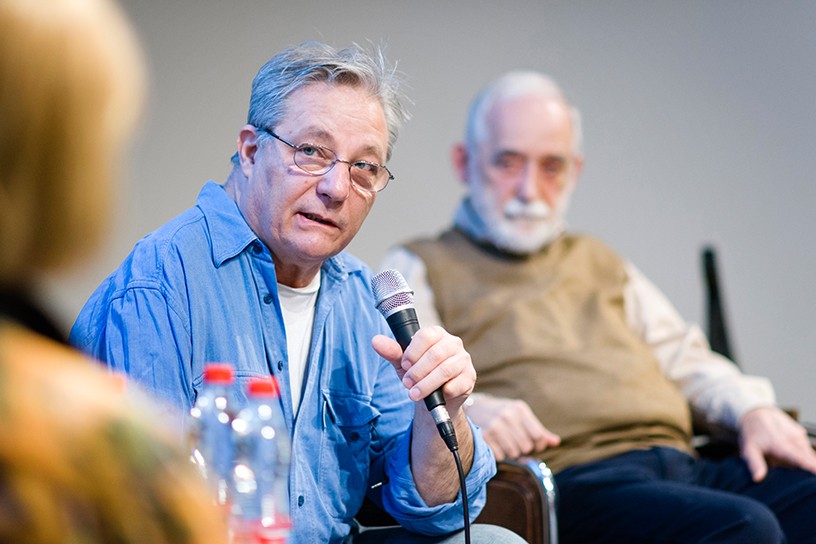
Ádám Csillag in conversation with Szilvia Nagy and János Vargha
Photo: Daniel Vegel, 2016.

Talk with Ádám Csillag (director of "Dunaszaurusz") and János Vargha (founder of Duna Kör) moderated by Szilvia Nagy
Photo: Daniel Vegel, 2016.

János Vargha
Photo: Daniel Vegel, 2016.
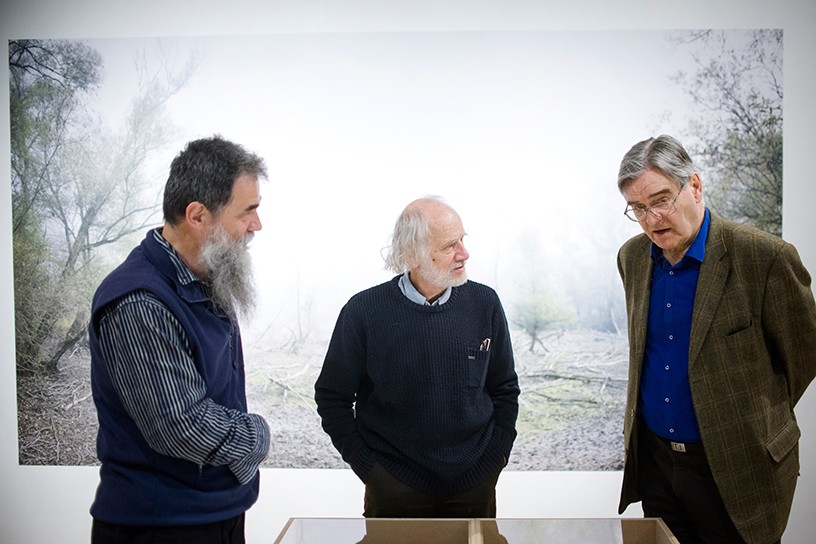
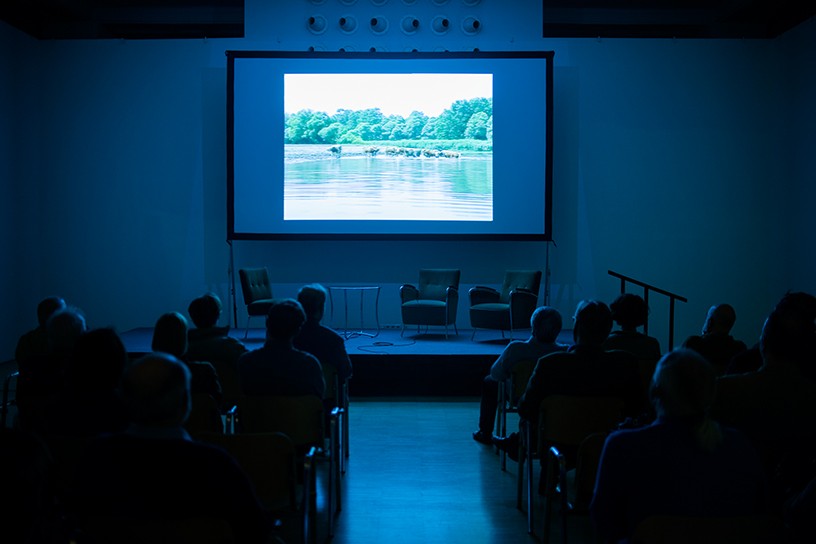
Filmscreening of Dunaszaurusz Part I & II (142 min)
Photo: Daniel Vegel, 2016.

Filmscreening of Dunaszaurusz Part I & II (142 min)
Photo: Daniel Vegel, 2016.
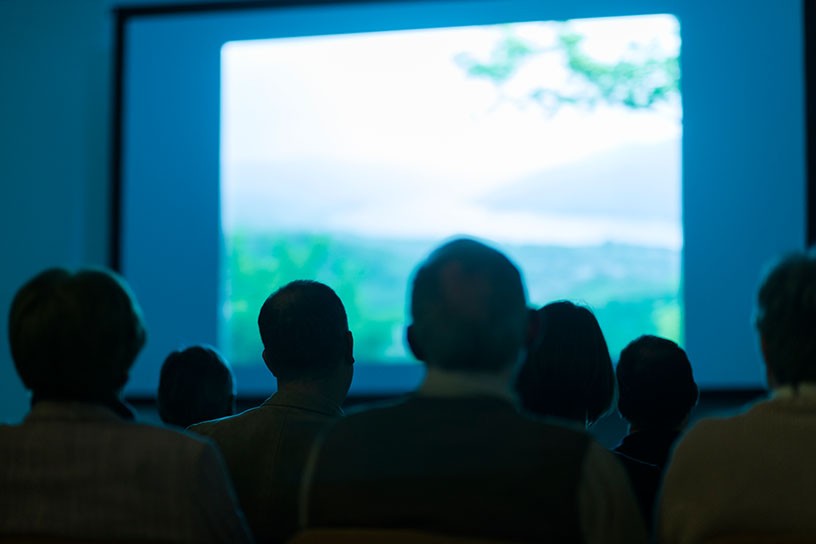
Filmscreening of Dunaszaurusz Part I & II (142 min)
Photo: Daniel Vegel, 2016.
Wednesday, 23 March 2016, 6:30 p.m.
Filmscreening: Ádám Csillag “Dunaszaurusz” (1988)
Talk with János Vargha, Moderator: Szilvia Nagy (in Hungarian)
The film is shown in Hungarian with English subtitles. The discussion will be in Hungarian.
Galeria Centralis of Vera and Donald Blinken Open Society Archives
Arany János utca 32, 1051 Budapest
An event of the POLITICISED LANDSCAPES program.
The film Dunaszaurusz (Dunasaur) presents the problems concerning the Gabčíkovo-Nagymaros Dam System and the failure of the dictator system in Hungary. The film investigates the impacts of the power plant and interviews scientists and illegally-organized, environment activists in order to gives a dramatic account of ecological and social problems as well as the courageous actions of civil society prior to the regime change. The film was elected the best documentary by critics in 1988.
Between 1984 and 1988 the media was banned from covering the construction of the dam system, and the film, Dunasaur was banned too, which prevented the entry into the annual film festival competition. Yet, after it was shown to parliamentary representatives and an audience of several hundred, the Environmental Committee of the Parliament successfully convinced the Prime Minister that the construction should be stopped. Upon pressure from society as well as a court ruling, the film was eventually shown on TV in 1989. Thereafter Dunasaur became a widely used name for the Gabčíkovo-Nagymaros Dam System in Hungarian and international politics and journalist jargon.
Csillag Ádám
Ádám Csillag is an outstanding Hungarian documentary filmmaker. He graduated from the University of Theater and Film Arts in Budapest in 1984 and has worked ever since as a documentary filmmaker. He first worked at the Balázs Béla Stúdió, where he made his token documentary, Dunasaur. From 1989 he worked for Hungarian Television, including filming the Velvet Revolution in Prague. From 1990 he participated in the MTV Opál productions in developing programs on human rights, minorities, and social issues for television. Ádám Csillag is a member of the Ethics Committee of the Association of Hungarian Film and TV Artists, and is also on the Board of Duna Kör.
János Vargha
Vargha is an environmentalist and a photographer. He graduated in 1977 from the József Attila University, Szeged, with a Master’s degree in biology. Since 1981 he has regularly published articles and delivered lectures about environmental issues of water management and construction. He is a founder of the Danube Circle, the first independent, environmental, protest group in the former communist bloc, recipient of the Right Livelihood Award, the alternative Nobel-prize in 1985. In 1990, he was awarded with the Goldman Environmental Prize. He is the editor of a book published in 1997 about the decision of the International Court of Justice in the Gabčíkovo-Nagymaros hydropower project’s case, and also the author of the chapter about hydropolitics. From 1998 till 2000 he was the chief environmental advisor of the Hungarian government.